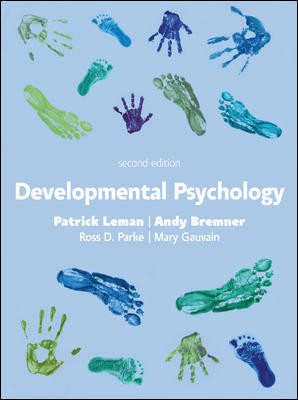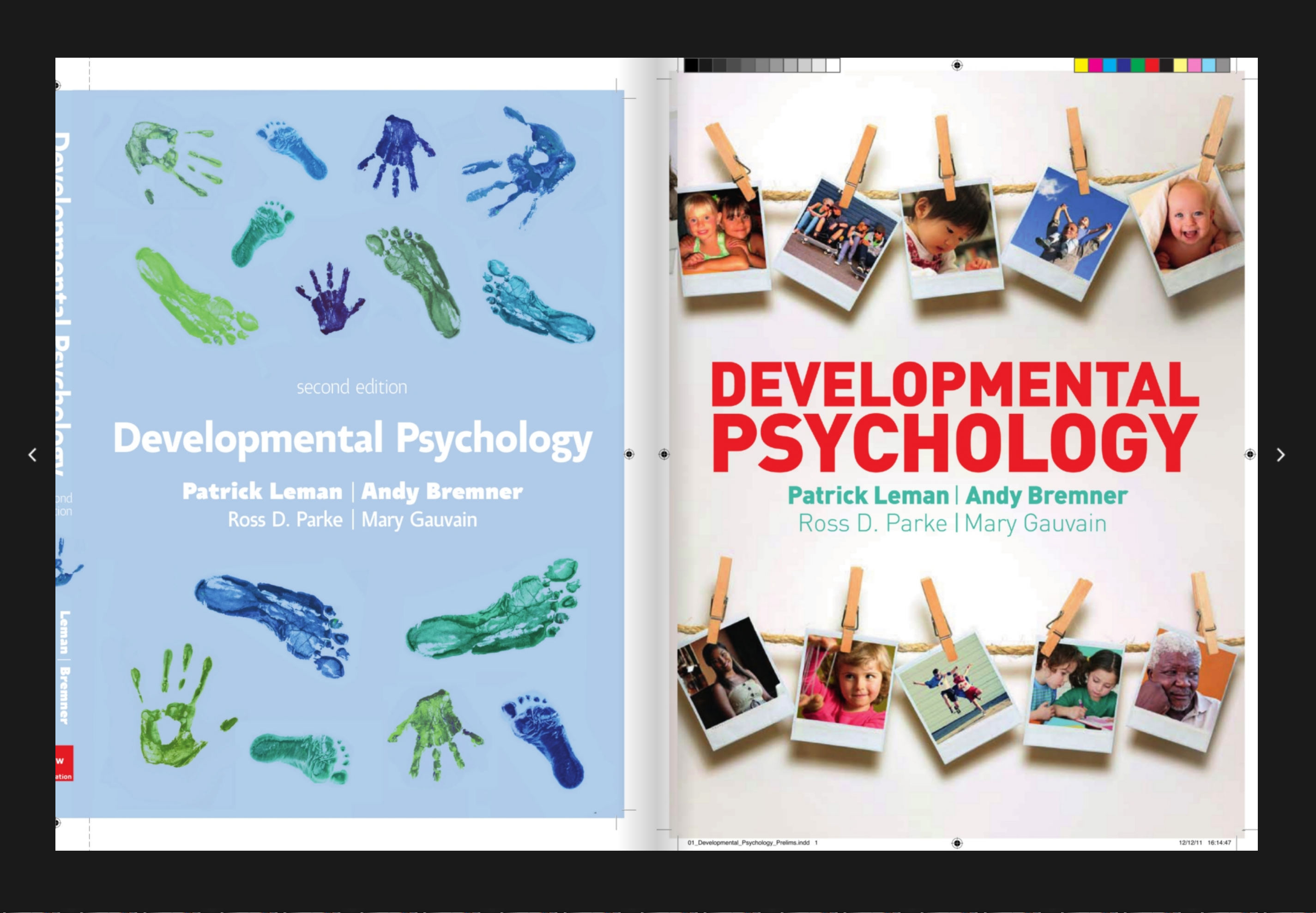Andy Bremner, University of Birmingham, UK
Developmental Psychology Second Edition
Patrick Leman, Andrew Bremner, Ross D. Parke, Mary Gauvain
ISBN: 9780077175191
The Second edition by this highly respected author team really delivers on the needs of developmental psychology instructors. It’s a highly flexible text that has student engagement and comprehension in mind, suitable for both first- and second-year undergraduate students.
The topical approach provides an accessible presentation of the theories that guide the research, without losing focus of the importance of data, while its international nature ensures students are provided a holistic introduction to the discipline.

What's new
Make it work for you
Whether you are teaching topical or chronological, child or lifespan, first- or second-year courses, the pedagogy and chapter structure is flexible enough to fit your needs. The international focus provides global coverage without neglecting key US studies, and classic theories have been retained while new research is added.
New and revised coverage
From diagnostics criteria aligned to the DSM-5, to the effects of puberty on the brain, the second edition has more than 15 sections added or updated. The coverage has been extensively revised to ensure the material is relevant, and provides students a solid foundation in the field of developmental psychology today.
Unlock critical thinking
We know that students struggle with the scientific-journal format and making connections between theory and real-world applications. The new edition tackles this through innovative pedagogical features and digital tools designed to keep students engaged and move them towards higher order critical thinking skills and analysis.
About the authors
Patrick Leman
Patrick is Professor of Psychology and Dean of Education at the Institute of Psychiatry, Psychology and Neuroscience, King’s College London. He completed his undergraduate degree at the University of Oxford, followed by a PhD at the University of Cambridge in children’s understanding of authority and moral reasoning.
Patrick’s research spans several areas of social developmental psychology in childhood and adolescence and is a Fellow of the British Psychological Society, and formerly Chair of the British Psychological Society Developmental.
Andrew Bremner
Andrew is a Reader in Psychology in the School of Psychology, University of Birmingham, where he conducts research into a variety of questions surrounding perceptual and cognitive development and developmental cognitive neuroscience.
Andy completed his first degree and DPhil in experimental psychology at the University of Oxford supervised by Professor Peter Bryant, F.R.S. Following some postdoctoral appointments Andy spent 13 years at Goldsmiths, University of London, where he was latterly Head of Psychology.
Transform learning: boost grades, stimulate engagement and deliver an amazing course
With so much content to get through, Connect Psychology provides the link between students,instructors and coursework to allow you to achieve more in less time.
As a learning and teaching environment, you can utilise pre-made, pedagogically reviewed instructor materials or add your own content to design a complete course with assignments, assessment and insightful automated reporting.
Connect also comes with SmartBook, the first and only adaptive reading experience that offers personalised learning paths for each student and provides instructors with insight as to how students are progressing through the content.
Allow students to experience life as it unfolds from infancy to late adulthood. This video series tracks the development of real children and adults as they progress through the stages of physical, social and emotional development in their first few weeks, months and years of life. Accessed from within Connect, the video resources are fully assignable and assessable.
A hands-on critical thinking tool for reviewing and analysing journal articles. Using a scaffolded framework to develop essential academic skills, such as understanding, analysing and synthesizing, Power of Process moves students towards higher order thinking and critical analysis.
With you all the way
To access your digital version of your Review Copy please complete the form below and we'll make the title available for you on our partner website - Vital Source.
Alternatively, our dedicated Academic Consultants, Digital Success and Customer Support teams are there to help you discover the right solution for your needs. We can create a bespoke offering that will allow you to achieve the institutional and commercial objectives of your learning & teaching programme.
Whether you want to adopt one of our titles or explore the use of our adaptive learning and teaching platforms, we will partner with you every step of the way to help ensure you unlock the potential of every student.
Simply complete this form to take your next step on your learning journey with McGraw-Hill Education.

